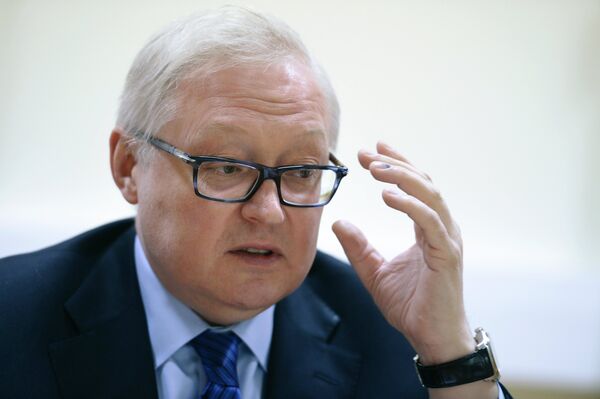MOSCOW, July 28 (RIA Novosti) – Russia and the United States have no grounds to make the Strategic Arms Reduction Treaty (START) dependent on the current political environment, Russian Deputy Foreign Minister Sergei Ryabkov told Rossiya Segodnya International News Agency Monday.
“I think that we shouldn’t judge on any environment and current processes not related to the sphere of control over weapons. We should judge on the efficiency of this or that document, and mainly its resistance to foreign influence. Initially, we considered this document as mutually beneficial,” Ryabkov said.
The diplomat said the START treaty has been “weighed from the viewpoint of balance of interests,” and “there are no any unjustified concessions in it.”
“It is simply impossible to find anything in this document that would now demand a radically new opinion to preserve it. And if so, there are no grounds to question this tool that in general, is really aimed at strengthening our security, both of the United States and Russia, and contribute to supporting the strategic stability,” he said.
At the same time, he marked it is a completely another issue that “there are people in the United States or the US Congress who have been trying to find everything possible based on their anti-Russian rage to bite or pinch us and show that they dislike any Russian approaches to the issues, first of all, regional, and in fact geopolitical.”
The New Strategic Arms Reduction Treaty (New START), which entered into force in February 2011, requires that the United States and Russia each reduce by 2018 to no more than 1,550 deployed strategic warheads on no more than 700 deployed intercontinental ballistic missiles (ICBMs), submarine-launched ballistic missiles (SLBMs) and nuclear-capable bombers.
The treaty includes monitoring measures that provide confidence that each side could detect a militarily significant violation in a timely manner.
Under the treaty, the sides routinely exchange data on strategic offensive weapons on March 1 and September 1 every year.

